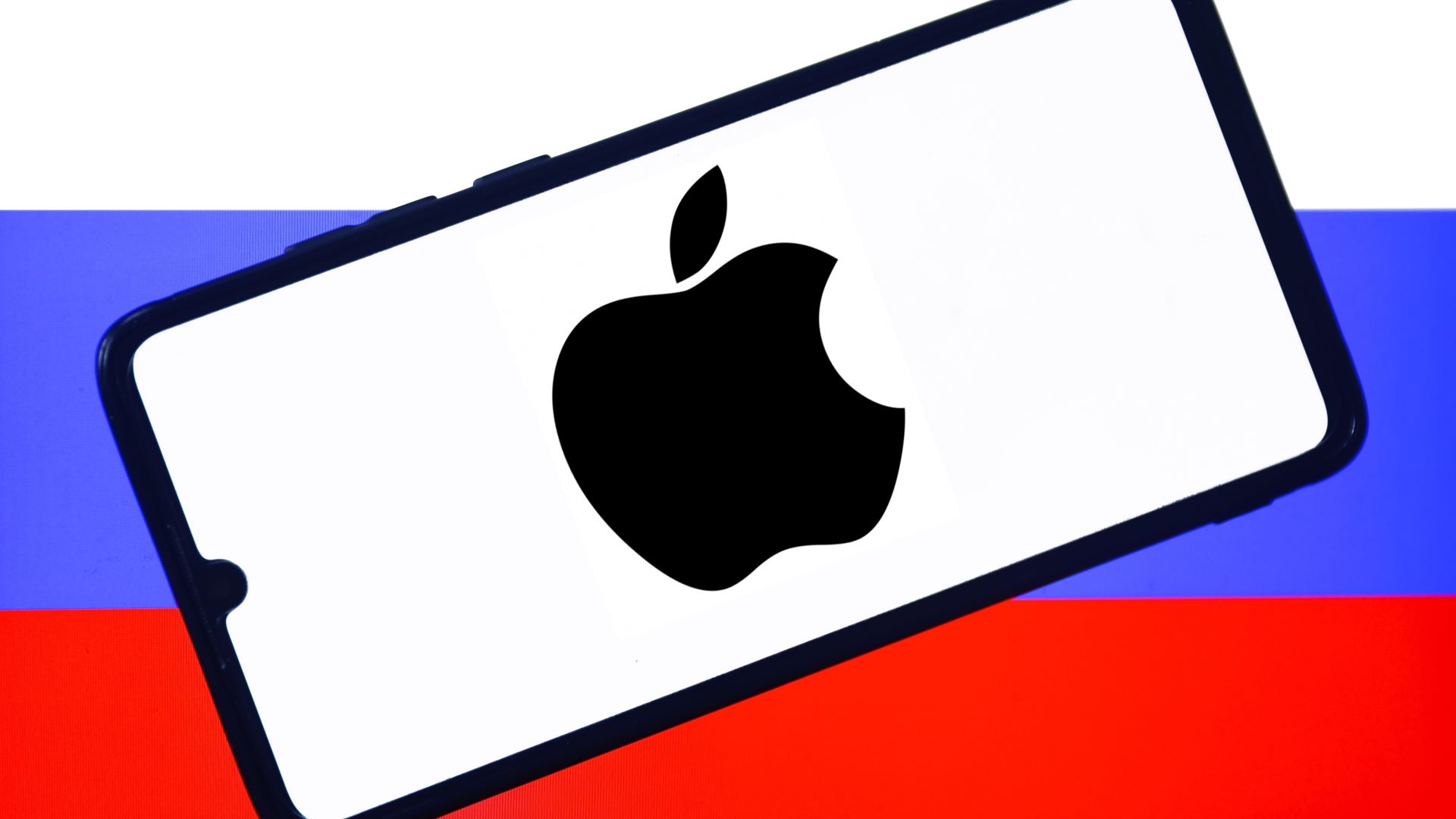Apple keeps removing VPN apps in Russia – and the toll is worse than we thought
The removal of VPN apps from Russia's Apple App Store is over double the official numbers

Sign up for breaking news, reviews, opinion, top tech deals, and more.
You are now subscribed
Your newsletter sign-up was successful
The scale of VPN removal in Russia is worse than previously reported as VPN apps keep disappearing from the local Apple App Store.
This is the worrying finding coming from an exclusive report from the App Censorship Project that found 60 apps, including some of the best VPN services on the market, were silently removed by Apple between early July and September 18, 2024. Russia's censor body, Roskomnadzor, publicly acknowledged only 25 VPN apps.
While the Kremlin has been targeting VPN tools for longer than a few months, the recent wave of removals began on July 4 when at least four VPN apps reportedly disappeared from the local Apple App Store. At the beginning of September, 50 human rights organizations, media outlets, IT companies, journalistic groups, and public figures wrote an open letter calling on Apple to "immediately restore" VPN apps to its Russian App Store. At that time, though, experts still believed the toll of removed VPN apps was set at 29.
98 Russia VPN apps unavailable in the App Store
"Apple's silent removal of close to 60 VPN apps from the Russia App Store is not just alarming – it's a direct threat to digital freedom and privacy," said Benjamin Ismail, Director of the App Censorship Project.
Researchers used data from the App Store Monitor (ASM) on AppleCensorship.com – a platform put together by the experts at GreatFire to monitor app availability in Apple's App Stores – to verify Roskomnadzor's claims and assess the current number of VPNs in Russia unavailable on the local Apple App Store.
A total of 360 VPN applications were tested globally across 175 App Stores. As of September 16, 2024, 98 VPN apps were found to be unavailable from the Russia App Store. These include some of TechRadar's favorites such as NordVPN, ExpressVPN, and Proton VPN.

A VPN (virtual private network) is security software that encrypts internet connections and spoofs users' IP addresses to grant them access to geo-restricted content. The latter skill is exactly why people in Russia are forced to use VPN apps to bypass online restrictions – exactly what the Kremlin wants to prevent.
These results shed new light on the scale of VPN censorship in Russia. For starters, the report uncovers a significant discrepancy between the number of applications removed that authorities acknowledged (25) and the actual figure (around 60) suggesting the scale of VPN removals is much larger.
Researchers also tracked removal patterns to see how these were concentrated on specific dates, suggesting coordinated actions. All in all, the findings show that Apple "continues to remove VPN apps from the Russia App Store without public acknowledgment, affecting more than 20% of identified VPN apps," the report reads.
According to Ismail, Apple actively shares the blame for helping the Kremlin censor the web. "By unilaterally restricting access to these essential tools without transparency or due process, Apple is complicit in enabling government censorship. We demand that Apple uphold its commitment to human rights and provide a clear explanation for these actions."
Russia and VPNs
Both Freedom House and Reporters Without Borders (RSF) classify Russia as one of the worst countries for internet freedom. This is due to high levels of internet censorship which have been intensifying since the invasion of Ukraine started.
The likes of Facebook, Instagram, and X (formerly known as Twitter) cannot be accessed unless using a VPN service, alongside an ever-growing list of websites that include news sites and even official sites of some VPN providers. Since March, a new law in Russia criminalizes the spread of information about ways to circumvent internet restrictions. All this makes the silent VPN removals occurring on Russia's Apple App Store since July a more serious issue.
"VPNs are lifelines for journalists, activists, and everyday citizens striving to access information and communicate securely," said Evan Greer, Director of Fight for the Future. "Apple's actions not only undermine the privacy and security of millions but also set a dangerous precedent for how tech companies may collaborate with authoritarian regimes.
As mentioned earlier, though, Russia's actions against VPN services aren't anything new, with VPN apps disappearing even before the war in Ukraine kicked off. Specifically, researchers found that 32 VPN apps were already unavailable before July 2024. Among these, 14 applications had been removed even before February 2022.
Apple has removed four VPN service apps from the Russian AppStore—Proton VPN, Red Shield VPN, NordVPN, and Le VPN.According to a notice published by Red Shield and Le VPN, the company refers to Roskomnadzor, Russian internet watchdog pic.twitter.com/BLuehvjn1hJuly 4, 2024
The data being released suggests we are seeing a swift escalation in Russia's VPN actions. Over a dozen apps were targeted between July 4 and July 7 alone, including ExpressVPN and CyberGhost. As of August 11, about 30 more applications have become unavailable on the local App Store.
According to researchers, the concentration of these removals over a certain period suggests providers are not the ones deliberately pulling out their service from the country. "If voluntary, it would be highly improbable for multiple VPN owners to decide independently to withdraw their apps from Russia on the same specific days," the report reads.
What's being done?
Experts now call on both Roskomnadzor and Apple for greater transparency over app removal policies and actions.
"Apple can no longer claim this isn't their concern or that they're simply following local laws. As a highly visible and influential corporation, Apple should recognize the image it's creating through its cooperation with censors," Sarkis Darbinian, a cyber lawyer at Russian digital rights advocacy group Roskomsvoboda and RKS Global told me.
"The situation has escalated to the point where anti-war songs by Russian punk and rap artists are being pulled from Apple's Russian music platform. As a result, it may lead not only to a complete technical, but also to a cultural fencing of Russians and, ultimately, to the triumph of propaganda," he added. "What further concessions will Apple make to Russian authorities?"
At this time, Russia's Google Play Store remains unaffected by this push for VPN censorship. This may indicate the Big Tech giant is potentially resisting Roskomnadzor's demands at the time of writing.
Or, as Ismail from the App Censorship Project told me: "Perhaps the authorities know that sideloading is possible on Android phones, and for that reason might try to focus on blocking the VPN servers rather than blocking access to the VPN apps themselves."

Chiara is a multimedia journalist committed to covering stories to help promote the rights and denounce the abuses of the digital side of life – wherever cybersecurity, markets, and politics tangle up. She believes an open, uncensored, and private internet is a basic human need and wants to use her knowledge of VPNs to help readers take back control. She writes news, interviews, and analysis on data privacy, online censorship, digital rights, tech policies, and security software, with a special focus on VPNs, for TechRadar and TechRadar Pro. Got a story, tip-off, or something tech-interesting to say? Reach out to chiara.castro@futurenet.com